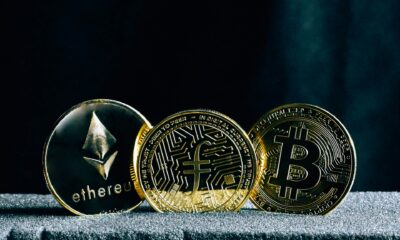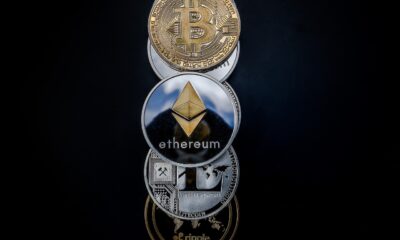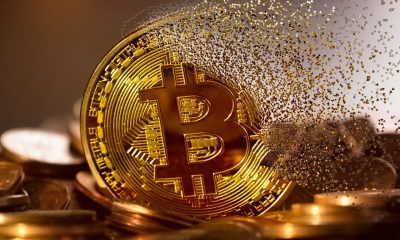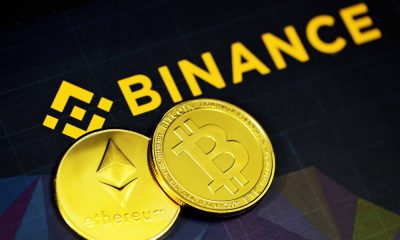Crypto
Ethereum gas fees push small investors to the sidelines while whales profit
A closer look at wallets holding at least 20 ETH in 2020 shows a higher number of Ethereum transactions than those originating from smaller wallets, which also correlates with an increase in fees. Hypothetically, a $200 trade and a $20,000 trade on UniSwap could both cost about $50 in fees under current conditions. This, of course, makes smaller wallets less likely to complete transactions.
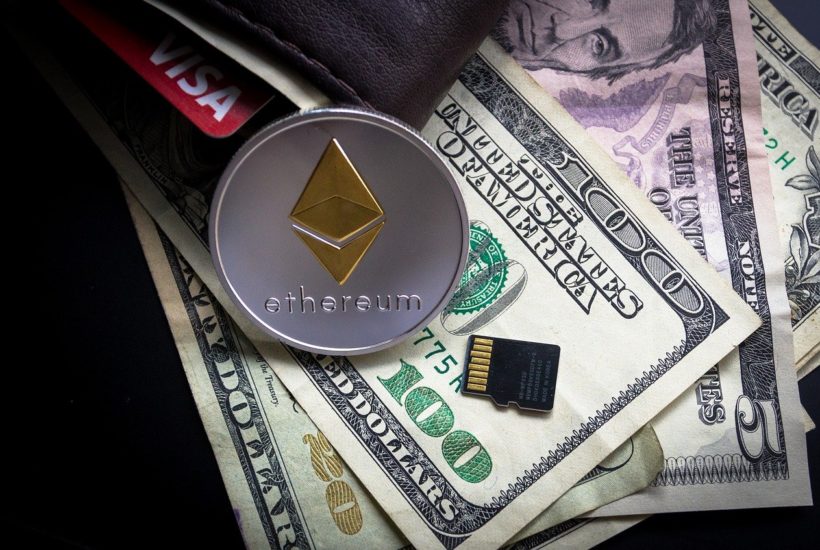
High gas fees on the Ethereum network make it almost impossible for small investors to interact with DeFi protocols. However, those who benefit from this are the Whales or large investors.
Since the early 2020s, the decentralized financial sector has gained a lot of attention due to its groundbreaking innovations and the lucrative, high return opportunities offered to cryptocurrency holders.
Read how Ethereum gas fees push small investors to the sidelines and find other business news with the Born2Invest mobile app.
Ethereum gas prices rip holes in ETH wallets
Despite these features, the record-high gas fees on Ethereum this week show that the sector is still experiencing growing pains, and the lack of a proper Layer 2 solution could push smaller investors away from DeFi.
Investors trying to place a trade on UniSwap or simply approve a token on their favorite DeFi platform will have noticed the hole these actions have left in their ETH wallet.
Current Ethereum gas fees
Data from Etherscan shows that while gas prices are not as high as they were in 2020, they have increased noticeably since December of last year. This rise in gas fees also coincides with the rise in the Ethereum price.
Analysis of the different time zones shows that the cost of transactions that take place during the Asian trading session is comparable to those during the US trading session. That shows that fees are a factor of network usage and highlights the 24-hour nature of the cryptocurrency market.
Graph of average Ethereum fees per day in 2020
However, there is one group that has benefited from the sharp increase in network fees: Whales.
Whales are claiming the DeFi playing field. A closer look at wallets holding at least 20 ETH in 2020 shows a higher number of Ethereum transactions than those originating from smaller wallets, which also correlates with an increase in fees.
Graph showing the number of transfers by wallet size in 2020
Since gas fees are calculated based on the cost of interacting with smart contracts rather than the size of the transaction, holders of large wallets are more likely to prioritize completing transactions on the Ethereum blockchain.
Hypothetically, a $200 trade and a $20,000 trade on UniSwap could both cost about $50 in fees under current conditions. This, of course, makes smaller wallets less likely to complete transactions. Indeed, in this numerical example, the cost of such a transaction would be 25% of the total value traded, rather than 0.25%.
So for the DeFi space to continue its explosive growth, it is necessary to solve the scaling problem on Ethereum. Fortunately, some projects and of course Ethereum itself are working on Layer 2 solutions. Some are even implementing them successfully already.
__
(Featured image by WorldSpectrum via Pixabay)
DISCLAIMER: This article was written by a third party contributor and does not reflect the opinion of Born2Invest, its management, staff or its associates. Please review our disclaimer for more information.
This article may include forward-looking statements. These forward-looking statements generally are identified by the words “believe,” “project,” “estimate,” “become,” “plan,” “will,” and similar expressions. These forward-looking statements involve known and unknown risks as well as uncertainties, including those discussed in the following cautionary statements and elsewhere in this article and on this site. Although the Company may believe that its expectations are based on reasonable assumptions, the actual results that the Company may achieve may differ materially from any forward-looking statements, which reflect the opinions of the management of the Company only as of the date hereof. Additionally, please make sure to read these important disclosures.
First published in CRYPTO MONDAY, a third-party contributor translated and adapted the article from the original. In case of discrepancy, the original will prevail.
Although we made reasonable efforts to provide accurate translations, some parts may be incorrect. Born2Invest assumes no responsibility for errors, omissions or ambiguities in the translations provided on this website. Any person or entity relying on translated content does so at their own risk. Born2Invest is not responsible for losses caused by such reliance on the accuracy or reliability of translated information. If you wish to report an error or inaccuracy in the translation, we encourage you to contact us.

-

 Crypto1 week ago
Crypto1 week agoEthereum Pushes AI Integration With ERC-8004 and Vision for Autonomous Agents
-

 Business4 days ago
Business4 days agoDow Jones Near Record Highs Amid Bullish Momentum and Bearish Long-Term Fears
-

 Business2 weeks ago
Business2 weeks agoDow Jones Breaks 50,000 as Bull Market Surges Amid Caution and Volatility
-

 Crowdfunding14 hours ago
Crowdfunding14 hours agoThe Youth Program at Enzian Shooting Club Is Expanding Thanks to Crowdfunding


